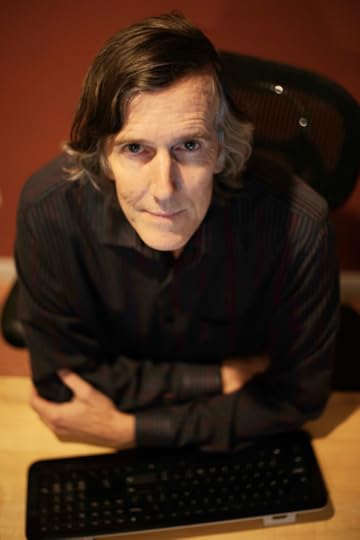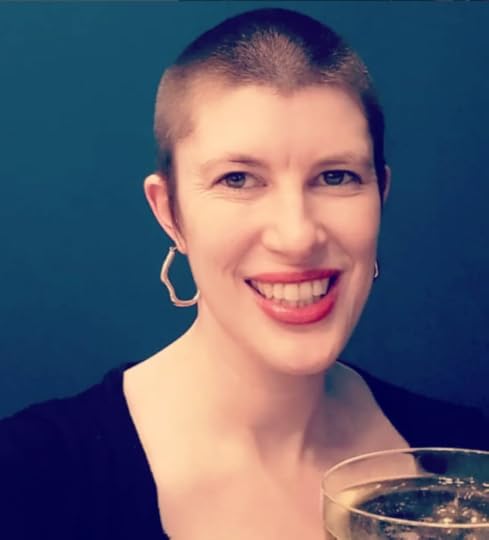Big Blog Round-Up: recent interviews, reviews, and features about THE AFTERLIFE PROJECT
It has been such a pleasure as well as a humbling honor to receive a whole slew of positive attention from these amazing fellow novelists and book bloggers in the days following the official launch of The Afterlife Project. My profound gratitude goes out to you all. Highly recommended to click through, read the blogs, and subscribe.

An online interview with Mark Stevens for his blog, Don’t Need a Diagram. A highly accomplished mystery and thriller novelist himself, Mark is also one of the best literary citizens I know. His questions were acute and thought-provoking, leading to what was for me a highly substantive and enjoyable discussion about dark fiction, climate change, National Geographic, paleoclimatology, short fiction, and the solace of geological time. The interview is followed by a very perceptive book review.
Quick excerpt: “My hope for this novel is that it will offer a sense of solace, and even a kind of optimism about the future . . . to show how important it is to slow down and really try to understand what we currently have and what we stand to lose.”
An online interview with Cliff Garstang for his regular blog feature, “I’ve Got Questions.” Cliff is also a fellow novelist, author of the excellent The Last Bird of Paradise and several other books, and another very good literary citizen. Long ago we spent a very memorable week together in Tepotzlán, Mexico, taking a writing masterclass with the great American novelist Russell Banks. This brief interview touches upon the inspiration for The Afterlife Project, some of the food and music I associate with the book, and the potential of fiction to play a role in saving the human species.

Quick excerpt: “Fiction, more than any other art form, enables a reader to experience the world from within a consciousness that’s not their own. Imagining alternative lives and alternative futures—sometimes very dark ones—from the relative safety and comfort of the bedside or a favorite reading chair, putting ourselves in the position of fictional characters as they confront tense and difficult challenges, and then processing those experiences and the emotions they evoke into wisdom or at least working theories about life, is a cathartic, healthy, and uniquely human practice.”

I’m gobsmacked by this glowing review on @tamsparks’ influential book blog, Books, Bones & Buffy. Here’s an excerpt: “Tim Weed’s latest novel is a gripping and emotional time travel/post apocalyptic adventure with a fair amount of science backing everything up. It’s also full of themes like found family and even a bit of romance, but mostly it’s an ode to our planet’s natural wonder and beauty, as well as a cautionary tale about humanity’s downfall. Weed masterfully tells his story in two timelines with a great deal of distance between them—more than 10,000 years!—and it’s surprisingly effective.”
Very much enjoyed writing this guest post for Chuck Wendig’s powerhouse literary blog, Terrible Minds: “Five Things I Learned While Writing The Afterlife Project.” This post touches on the surprising power of dark fiction, one-way time travel, the nature of time, the fate of humanity, and more. My thanks to Chuck for the helping hand he regularly offers to less well-known authors. His is a blog every novelist should bookmark and read regularly, not only for the trademark madcap sense of humor, but also for its deep underlying wisdom.

Quick Excerpt: “Dark fiction isn’t for everyone, but if you like it—if you’re drawn to the writing of Stephen King, for example, or Shirley Jackson or Margaret Atwood or our own Chuck Wendig—then it’s possible that you’re the kind of reader for whom the horrific offers a particular kind of reading pleasure. Because let’s face it: there’s power in darkness. It’s an essential source of narrative drive for one thing—what keeps the pages turning—and it’s also a healthy response to personal stress and the ongoing shit-show of current events.”

My friend and Boston writing colleague Crystal King created a fascinating pairing for a book giveaway on her highly recommended substack, Tasting Life Twice. Quick excerpt: “The Afterlife Project pulled me into a chilling future that felt all too real, with a story so original and propulsive I couldn’t put it down.”
A very nice review from M.K. Tod on her blog, A Writer of History. M.K. is a Canadian historical novelist whom I first met back in 2014 when I published my first novel, also historical, Will Poole’s Island. At the time she asked me to write something about world-building in historical fiction — but it turns out those insights, as M.K. points out, are also very applicable to writing about the future!


Finally, this thoughtful review from Dr. Laura Tisdall, author, historian, and senior lecturer at Newcastle University (UK): “I was utterly immersed in The Afterlife Project, which covers some grim ground but . . . finds unexpected hope . . . And unlike so many recent eco-fictions that seek to show, as this does, that humans are merely a part of nature and not the be all and end all . . . Weed avoids nihilism, recognising the value of humanity but also its fragility. Highly, highly recommended, especially for MacInnes fans.”



